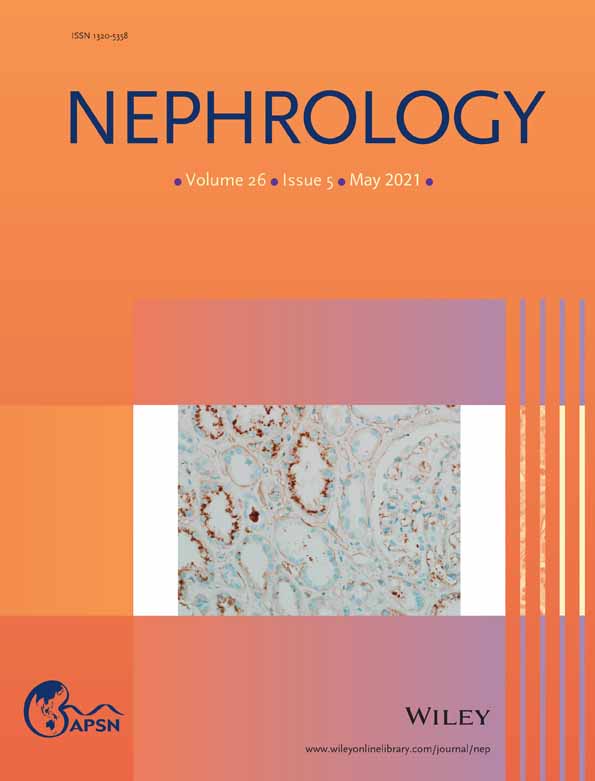Characteristics of the gastrointestinal microbiota in paired live kidney donors and recipients
Funding information: Australian Health and Medical Research Council, Grant/Award Number: APP1168186; Microba, Grant/Award Number: Microba Research Grant; Royal Australasian College of Physicians, Grant/Award Number: Jacquot Research Establishment
Abstract
Background
There are few studies that have examined whether dysbiosis occurs in kidney donors and transplant recipients following kidney transplant surgery.
Aim
To ascertain whether changes occur in the gastrointestinal microbiota of the kidney donor and recipient following kidney transplantation.
Methods
Kidney transplant recipients and their donors were prospectively enrolled in a pilot study to collect one faecal sample prior to, and another faecal sample between four to eight weeks following surgery. Gastrointestinal microbiota richness, Shannon diversity measures and functional assessments of kidney donors and recipients were analysed via metagenomic sequencing.
Results
The study included 12 donors (median age 56 years, 6 females) and 12 recipients (median age 51 years, 3 females). Donor microbiota showed no significant changes in gastrointestinal microbiota richness, Shannon diversity, or functional assessments before and after nephrectomy. Recipient microbiota was altered post-transplant, reflected in reductions of the mean (±SD) richness values (156 ± 46.5 to 116 ± 38.6, p = 0.002), and Shannon diversity (3.57 ± 0.49 to 3.14 ± 0.52, p = 0.007), and a dramatic increase in Roseburia spp. abundance post-transplant (26-fold increase from 0.16 ± 0.0091 to 4.6 ± 0.3; p = 0.006; FDR = 0.12). Functionally, the post-transplant microbial community shifted towards those taxa using the glycolysis pathway (1.2-fold increase; p = 0.02; FDR = 0.26) for energy metabolism, while those functions involved with reactive oxygen species degradation decreased (2.6-fold; p = 0.006; FDR = 0.14).
Conclusion
Live donor kidney transplantation and standard care post-transplant result in significant alterations in gut microbiota richness, diversity, composition and functional parameters in kidney transplant recipients but not in their kidney donors.
CONFLICT OF INTEREST
Samuel Chan is supported by the Australian National Health and Medical Research Council (NHMRC) Postgraduate Scholarship, the Microba recipient grant, the Metro South Research Support Scheme, and the Royal Australasian College of Physicians NHMRC Jacquot Research Excellence top-up award. Furthermore, Dr Chan is a current recipient of the 2018 Sir Gustav Nossal NHMRC Postgraduate Scholarship award. Carmel Hawley is the recipient of research grants paid to her institution from Baxter Healthcare and Fresenius Medical Care and from Otsuka, Janssen and GlaxoSmithKline for trial steering committee activities, paid to her institution. David Johnson has received consultancy fees, research grants, speaker's honoraria and travel sponsorships from Baxter Healthcare and Fresenius Medical Care, consultancy fees from Astra Zeneca, Bayer and AWAK, speaker's honoraria and travel sponsorships from ONO, and travel sponsorships from Amgen. He is a current recipient of an Australian NHMRC Practitioner Fellowship. Nicole Isbel has received consultancy fees and speakers honoraria from Alexion Pharmaceuticals, Novo Nordisk and Amgen. The remaining authors have no conflicts of interest to declare with respect to the context and scope of this manuscript.




